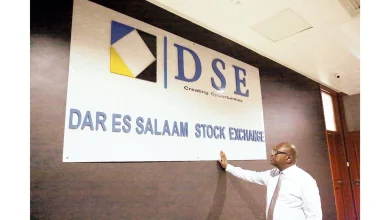Africa urged to pursue bold reforms for value addition in commodities

LONDON: Ghana International Bank (GHIB) Chief Executive Officer, Dean Adansi, has called for bold reforms to drive value addition across Africa’s commodity sectors instead of continuing the export of raw materials.
Mr Adansi made the remarks during the recent GHIBCONVERGE 2025 Summit in London, which brought together senior figures from across Africa and global finance under the theme “Rethinking Commodity Finance for Growth.”
He presented a transformative agenda centred on establishing value-addition funds, expanding structured trade finance to support processing and refining infrastructure, and harmonising trade rules under the African Continental Free Trade Area (AfCFTA) to boost regional trade in finished goods.
According to Mr Adansi, Africa is losing billions of dollars annually by exporting raw commodities rather than processed products. “We are sitting on untapped billions in export revenues because we continue to export raw cocoa instead of chocolate, raw gold instead of refined bullion, and raw cashew instead of processed kernels,” he said.
Despite decades of industrialisation efforts, only 14 per cent of African exports are processed or value-added — a figure that has remained stubbornly low.
Forum speakers agreed that refining and exporting finished products is key to strengthening African currencies, creating jobs, and building economic resilience.
Central Bank of Gambia Governor Buah Saidy stressed the macroeconomic importance of refining commodities at source. “For too long, Africa’s commodity wealth has been exported in its rawest form, leaving value and jobs offshore. Refining at source helps us anchor our currencies and build stronger reserves,” he noted.
Similarly, Bank of Ghana First Deputy Governor Zakaria Mumuni underscored the importance of domestic gold refining, saying it was essential to ensure citizens benefit more directly from the nation’s resources.
Adding a geopolitical perspective, GHIB board member and former UK minister Lord Paul Boateng urged African countries to leverage their resources in global negotiations. “Critical minerals, cocoa, gold — these are not just export lines in a trade ledger. They are bargaining chips in a changing global order,” he remarked during a panel discussion on Africa’s role in the energy transition.
The forum also served as a platform for concrete action. GHIB announced a strategic partnership with Vista Bank, aimed at expanding trade finance across West Africa while supporting the growth of processing industries and regional value chains.
Celebrating African enterprise, the inaugural Trader of the Year Award was presented to Edmund Poku, CEO of Niche Cocoa Industry Ltd., recognised for scaling local cocoa processing into global markets. “Edmund represents the future we want to see — African businesses not just participating in, but leading global value chains,” said Adansi.
As the summit closed, Mr Adansi emphasised the need for collective effort. “The transformation will not be led by governments alone or by the private sector alone. It requires a coalition of committed actors who see beyond short-term margins to long-term wealth creation for Africa,” he said.
With global interest growing in Africa’s critical minerals, food systems, and green energy potential, the London summit was seen as a pivotal moment — one signalling that Africa’s future in commodities will be defined not by extraction, but by transformation.





